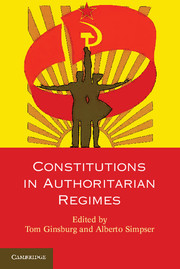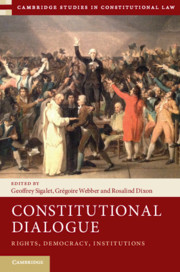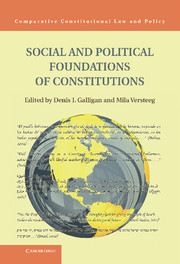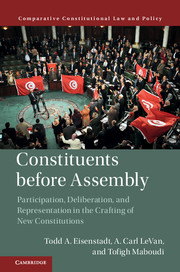Democracy under God
State recognition of Islam in Muslim countries invites fierce debate from scholars and politicians alike, some of whom assume an inherent conflict between Islam and liberal democracy. Analyzing case studies and empirical data from several Muslim-majority countries, Ahmed and Abbasi find, counterintuitively, that in many Muslim countries, constitutional recognition of Islam often occurs during moments of democratization. Indeed, the insertion of Islam in a constitution is frequently accompanied by an expansion, not a reduction, in constitutional human rights, with case law from higher courts in Egypt and Pakistan demonstrating that potential tensions between the constitutional pursuit of human rights, liberal democracy and Islam are capable of judicial resolution. The authors also argue that colonial history was pivotal in determining whether a country adopted the constitutional path of Islam or secularism partly explaining why Islam in constitutional politics survived and became more prevalent in Muslim countries that were colonized by the British, and not those colonized by the French or Soviets.
- Provides quantitative and qualitative analysis of Islamic provisions in the constitutions of Muslim-majority states
- Engages with debates about the relationship between religion, colonialism, secularism and human rights, demonstrating the neglected impacts of political bargaining and colonialism on secularism in the Muslim world
- Evaluates the practical application of Islamic constitutional clauses by analyzing court cases in Pakistan and Egypt
Reviews & endorsements
‘In this book, Ahmed and Abbasi present a systematic argument and a powerful empirical lens to study the interface of religion, law, and politics in the Muslim world. Democracy under God presents an original and illuminating perspective on Islamic constitutionalism, which is supported by multi-disciplinary perspectives and a rich array of historical and contemporary empirical cases ranging from the Ottoman Empire to West Africa and Pakistan. This is a provocative and insightful book that will be of interest to a wide audience.' Adeel Malik, University of Oxford
‘In this wide-ranging book, Ahmed and Abbasi closely analyse the role of religious faith in the crafting of constitutions of diverse Muslim-majority countries. Taking nothing for granted while exploring the critical tension between human rights and Islam, the authors provide a profound insightful take that compels readers to question their assumptions. As a broad comparative study, the book is essential reading for scholars of law and religion, legal historians and constitutional law.’ Nurfadzilah Yahaya, Yale University
Product details
March 2023Hardback
9781107158054
225 pages
235 × 155 × 17 mm
0.5kg
Available
Table of Contents
- Introduction
- Part I. 1. Islamic constitutionalism: origins and present
- 2. What is an Islamic constitution?
- Part II. 3. Constitutional Islamisation and Islamic supremacy clauses
- 4. Case studies
- Part III. 5. Islamic supremacy clauses and rights – Islamic review in practice
- Conclusion.







.jpg)